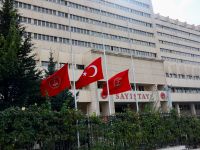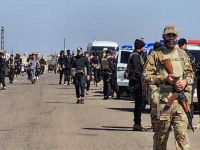U.N. representatives from Iraq and Syria denied on November 22nd reports from November 21st that an Iraqi-Syrian pipeline had reopened the previous week after 18 years of disuse.
Iraq’s U.N. representative Saeed Hasan said that Iraq was “preparing for eventual export” on the pipeline, according to a letter from the chief of the oil-for-food program to other U.N. officials.
A spokesman from the U.N. indicated that officials from the humanitarian program were contacting Iraqi and Syrian envoys to confirm whether the line had reopened, after the U.N. had said on November 21st that Baghdad had not notified the sanctions committee about its intention to restart the pipeline.
Syrian state oil marketer Sytrol had refused earlier on November 22nd to specify what arrangements for payment had been made for Iraqi crude oil reportedly transported through the pipeline.
The U.S. and the U.K. are not opposed to the reopening of the pipeline, as long as all revenues from the sale of Iraqi crude remain under U.N. control.
Western diplomats indicated on November 21st that Syria had earlier assured the U.S. and the U.K. that the Iraqi-Syrian pipeline would not reopen without U.N. approval, while the U.S. State Department said that it was inquiring into the reports through the U.S. embassy in Damascus.
Also on November 22nd, Baghdad submitted crude oil prices for the month of December to the U.N. for mandatory approval that were below market value, presumably to accommodate a premium of 50 cents per barrel that Iraqi state oil marketer SOMO plans to charge traders.
SOMO reportedly asked lifters of its crude on November 16th to pay the premium into a separate account outside of U.N. control beginning December 1st.








